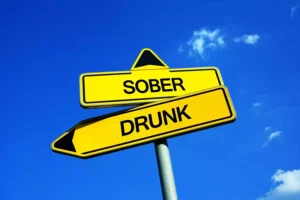
The newer types of these medications work by offsetting changes in the brain caused by AUD. Acceptance- and mindfulness-based interventions increase awareness and acceptance of present-moment experiences. Mindfulness-based skill-building strategies promote flexible, rather than autopilot, responses to triggers that can prompt drinking. Professionally led treatments include behavioral treatments and medications. The evidence suggests that the free and flexible assistance provided by mutual-support groups can help people make and sustain beneficial changes and, thus, promote recovery.

E-Health Alcohol Treatment Tools*
The liver is responsible for metabolizing or processing ethanol, the main can alcoholism be cured component of alcohol. Over time, the liver of a person who drinks heavily can become damaged and cause alcoholic liver disease. Cirrhosis of the liver occurs when there is so much scar tissue that the liver can no longer properly perform its functions. Individuals who suffer from cirrhosis of the liver have a potentially fatal condition. Your provider may also be able to suggest an online self-guided program. Such e-health tools have been shown to help people overcome alcohol problems.
Older people

In addition to these considerations, older people also tend to take more medications than younger people. These medications can potentially interact with alcohol, which can worsen symptoms. https://ecosoberhouse.com/ These situations can range from small, such as where a person put their keys, to large, such as forgetting what happened in night. According to Duke University, the inability to remember anything from a night out usually occurs after a person has had five or more drinks. A 2013 study found that an estimated 78 percent of individuals diagnosed with AUD experience changes to the brain.

Will I Relapse After Treatment?
- Outpatient treatment provides daily support while allowing the person to live at home.
- Like with all drugs, long-term alcohol abuse creates changes in the brain’s biochemistry.
- However, stopping consuming alcohol sooner can help stop the progression of nerve damage.
- Yes, long-term excessive alcohol consumption may lead to peripheral neuropathy, which can cause pain in your feet.
- The counselor provides information about the individual’s drinking pattern and potential risks.
It helps individuals gain access to specialized care and support services that are tailored to their needs. The program also provides a safe, comfortable setting where individuals can focus on recovery without triggers or distractions from everyday life. If you’ve been drinking alcohol for a long time, you might experience alcohol withdrawal symptoms, including disorientation, agitation, and mood changes.

Abstaining from drinking alcohol is the first step in treating ALD. A team of healthcare providers, which may include psychologists or addiction specialists, can help if you find it challenging to stop drinking. Although there is no absolute “cure” for alcoholism, we are able to recover from the hopeless state of body and mind that has resulted from the disease. Rather than a cure, we have recovery programs designed to maintain sobriety and remove symptoms of the disease. Alcoholism can be successfully treated through adherence to recovery programs. The National Institute on Drug Abuse explains that addiction and alcoholism cannot be cured.
Psychological Effects From Drinking
An important first step is to learn more about alcohol use disorder and your treatment options. In order for treatment to work, the person with an alcohol addiction must want to get sober. It can cause changes to the brain and neurochemistry, so a person with an alcohol addiction may not be able to control their actions. By classifying alcoholism as a chronic disease, it means that alcoholism is viewed as a progressive, long-lasting illness where there is no cure. No cure, however, does not mean there is no hope for long-term recovery.
- Many people fear that relapsing means they have undone all of the hard work previously done in treatment and that they will never achieve sobriety again.
- It may signify that your course of treatment needs to change for the time being, but that is something you should always discuss with your healthcare provider and/or therapist.
- This form of therapy is focused on identifying the feelings and situations (called “cues”) that contribute to heavy drinking and managing stress that can lead to a return to drinking.
- Speak with a healthcare professional if you experience symptoms of alcohol-related neuropathy or are struggling to stop drinking.
Treatment Options for Alcoholism
Understanding the available treatment options—from behavioral therapies and medications to mutual-support groups—is the first step. The important thing is to remain engaged in whatever method you choose. Evaluate the coverage in your health insurance plan to determine how much of the costs your insurance will cover and how much you will have to pay. Ask different programs if they offer sliding-scale fees—some programs may offer lower prices or payment plans for individuals without health insurance. Motivational enhancement is conducted over a short period of time to build and strengthen motivation to change drinking behavior.